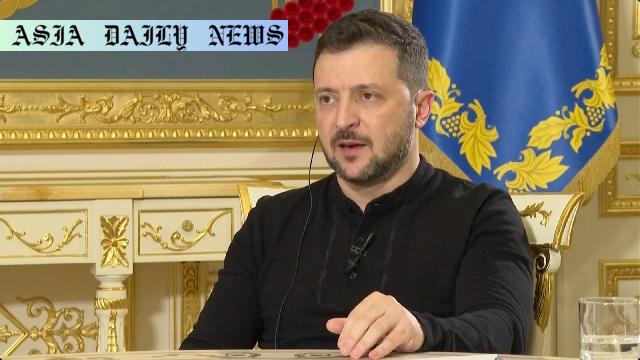Peace Negotiations: Ukraine and Russia resume talks in Turkey for the third round, striving for a ceasefire amidst ongoing drone strikes.
- Ukraine and Russia will resume peace negotiations in Turkey on Wednesday.
- This marks the third direct round of talks, though significant disagreements persist.
- Drone strikes and escalating military actions burden the peace process.
- US President Trump threatens tariffs to pressure Russia into a ceasefire agreement.

Peace Negotiations Resuming Amidst Heightened Tension
After months of conflict and uncertainty, Ukrainian President Volodymyr Zelenskyy announced that peace talks with Russia would resume on Wednesday in Turkey. This critical round of negotiations marks the third direct attempt by both nations to reach a resolution amidst the ongoing war. While prior discussions in Istanbul achieved some developments, including prisoner exchanges and the return of fallen soldiers, key points of contention continue to hinder meaningful progress. The resumption of peace talks reflects a glimmer of hope, but deep rifts persist between the two sides.
Divergent Demands: Obstacles to Progress
The demands from both sides highlight the complexities of finding common ground. Ukrainians seek an unconditional ceasefire lasting at least 30 days as a gesture of goodwill and a pause to the ongoing devastation. On the other hand, Russia’s demands revolve around Ukraine’s retreat from four regions in the east and south, areas that have seen intense clashes and hold geopolitical significance. Such contradictory positions underscore the immense challenge negotiators face in brokering a deal that satisfies both nations while addressing the broader humanitarian crisis.
External Pressures and Global Involvement
The international community has closely monitored these developments, with significant pressure exerted by the United States. President Donald Trump introduced a tactic involving potential economic penalties, announcing that stiff tariffs would be imposed on Russia if a ceasefire agreement isn’t reached within two months. This move aims to pressurize Russian authorities into making concessions. However, Kremlin spokesperson Dmitry Peskov has tempered expectations, suggesting that the talks are unlikely to yield “magical breakthroughs.” His comments resonate with the sentiment shared by experts who predict that these discussions may serve as stepping stones rather than resolutions.
Continuous Conflict: Military Actions Threaten Talks
The resumption of peace talks has been juxtaposed against ongoing military escalations. Over the weekend, Ukrainian offensives utilizing drone strikes disrupted infrastructure in and around Moscow, leading to delays and cancelations at key airports. Russian defense officials claimed that their forces intercepted the attacks, but the interruptions caused logistical challenges for citizens and businesses alike. Such actions reflect the intense state of the conflict, where both sides continue to exert military pressure despite discussions behind closed doors.
Hope Amidst Conflict
Despite the obstacles, efforts to convene at the negotiation table represent cautious optimism. The talks have attracted global attention as proponents of peace advocate for a diplomatic solution to prevent further casualties and destruction. Humanitarian advocates stress the critical need for a ceasefire to address the escalating humanitarian crisis. As the world watches, the outcome of the third round of peace negotiations will offer a glimpse into whether diplomacy can endure in the face of relentless conflict.



Commentary
The Significance of Peace Negotiations in a Time of War
The resumption of peace talks between Ukraine and Russia highlights both the urgency and complexity of resolving one of the most consequential conflicts of our time. As the war continues to take a devastating toll on civilians and infrastructure, the announcement of a third round of negotiations provides a sliver of hope to those affected. It underscores the resilience and determination of diplomatic channels even amidst the noise of military strikes and discord. Peace negotiations represent the arduous but necessary path toward healing and stabilization.
Challenges and Global Ramifications
The divergent positions of Ukraine and Russia underline the challenges inherent in finding common ground. This is more than just a regional clash; it has significant geopolitical and humanitarian ramifications. Russia’s insistence on territorial concessions, juxtaposed against Ukraine’s appeals for a ceasefire, reflects the deep divide in priorities and trust. At the same time, global powers like the United States play a key role in shaping outcomes through economic and political pressure, further complicating the negotiation dynamics.
A Delicate Balance Between Hope and Skepticism
While optimism is necessary to sustain diplomatic efforts, it is tempered by skepticism rooted in historical precedence and recent developments. Drone strikes and escalations on both sides mirror the fragile nature of peace-building endeavors. However, as nations and international entities rally support and exert influence, the potential for breakthroughs, even incremental ones, persists. In the end, the success of these talks hinges on the willingness of both parties to prioritize a long-term vision over short-term gains.